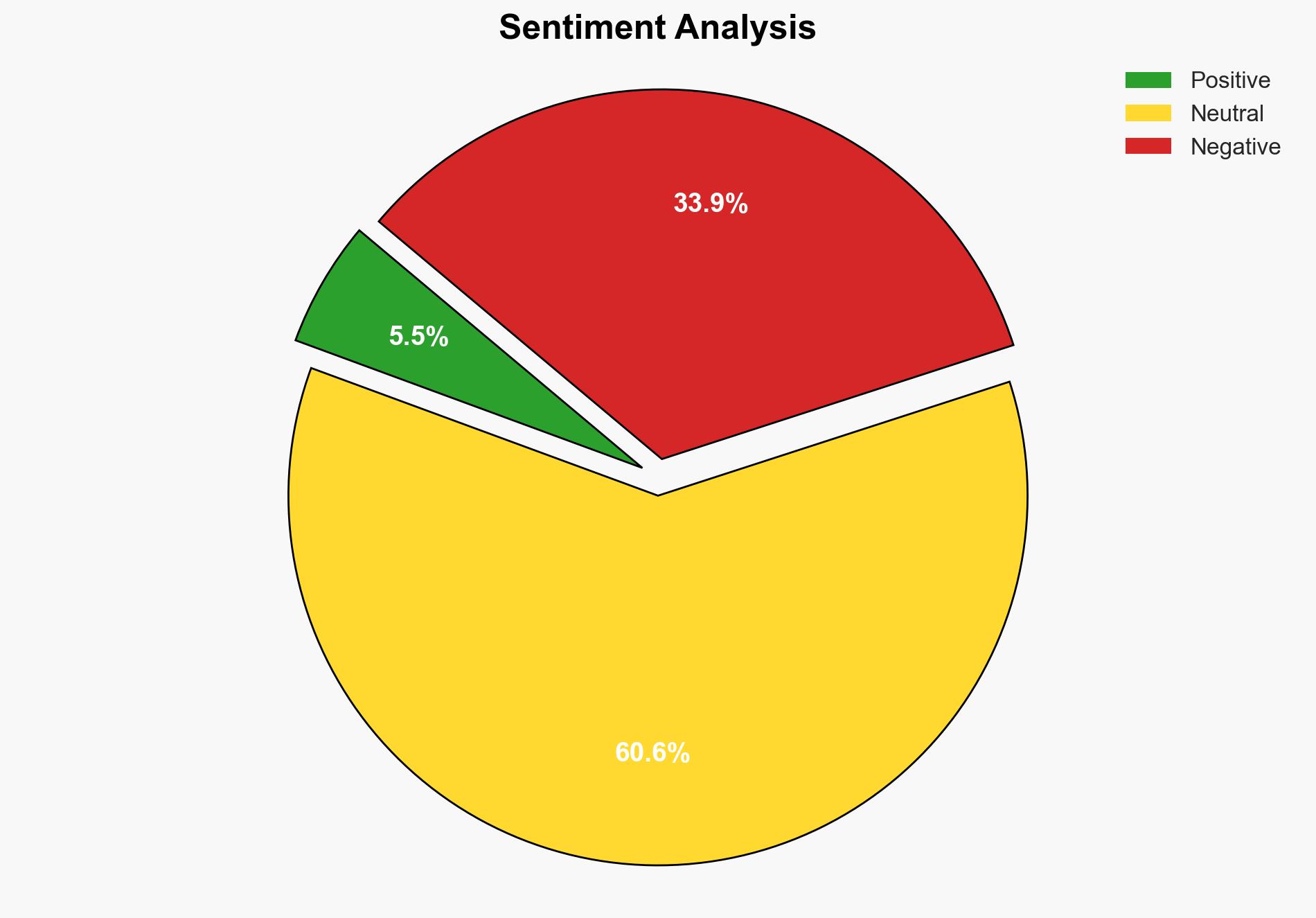Israel strikes Beirut for the first time since a ceasefire ended the latest Israel-Hezbollah war – New York Post
Published on: 2025-03-28
Intelligence Report: Israel strikes Beirut for the first time since a ceasefire ended the latest Israel-Hezbollah war – New York Post
1. BLUF (Bottom Line Up Front)
Israel has conducted airstrikes on Beirut for the first time since a ceasefire ended hostilities with Hezbollah. The strikes targeted areas in southern Beirut, reportedly in retaliation for rocket fire from Lebanon into northern Israel. This escalation poses significant risks to regional stability and may lead to further military engagements unless diplomatic interventions are successful. Immediate actions are recommended to de-escalate the situation and prevent further civilian casualties.
2. Detailed Analysis
The following structured analytic techniques have been applied for this analysis:
General Analysis
The recent airstrikes by Israel on Beirut mark a significant escalation in the Israel-Hezbollah conflict. The strikes were reportedly in response to rocket attacks from Lebanon, which Israel attributes to Hezbollah. The targeted areas in southern Beirut are known for Hezbollah’s presence, including a drone storage facility. The Lebanese government has responded by closing schools and universities in affected areas, indicating the severity of the threat. The conflict has historical roots, with previous ceasefires failing to hold long-term peace. The current situation is exacerbated by recent hostilities involving Hamas, further complicating the geopolitical landscape.
3. Implications and Strategic Risks
The escalation between Israel and Hezbollah poses several strategic risks:
- National Security: Increased military activity may lead to broader regional conflict, threatening national security for both Israel and Lebanon.
- Regional Stability: The conflict risks destabilizing the Middle East, potentially drawing in neighboring countries and affecting global diplomatic relations.
- Economic Interests: Prolonged conflict could disrupt trade routes and economic activities in the region, impacting global markets.
4. Recommendations and Outlook
Recommendations:
- Engage in diplomatic efforts to broker a new ceasefire agreement between Israel and Hezbollah.
- Encourage international mediation to address underlying issues and prevent further escalation.
- Implement technological solutions to enhance border security and prevent unauthorized rocket launches.
Outlook:
Best-case scenario: Successful diplomatic interventions lead to a renewed ceasefire and de-escalation of military activities.
Worst-case scenario: Continued hostilities result in a full-scale war, drawing in additional regional actors and causing significant civilian casualties.
Most likely outcome: Sporadic clashes continue, with intermittent diplomatic efforts attempting to stabilize the situation without achieving a long-term resolution.
5. Key Individuals and Entities
The report mentions significant individuals and organizations involved in the conflict:
- Benjamin Netanyahu
- Joseph Aoun
- Emmanuel Macron
- Donald Trump
- Tammy Bruce
- Jeanine Hennis-Plasschaert





